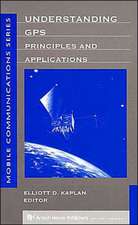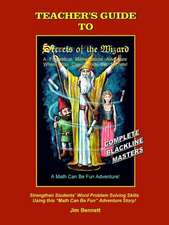Navigation: A Very Short Introduction: Very Short Introductions
Autor Jim Bennetten Limba Engleză Paperback – 23 feb 2017
Din seria Very Short Introductions
-
 Preț: 47.44 lei
Preț: 47.44 lei -
 Preț: 47.01 lei
Preț: 47.01 lei -
 Preț: 40.95 lei
Preț: 40.95 lei -
 Preț: 46.09 lei
Preț: 46.09 lei - 5%
 Preț: 56.93 lei
Preț: 56.93 lei -
 Preț: 56.45 lei
Preț: 56.45 lei -
 Preț: 56.93 lei
Preț: 56.93 lei -
 Preț: 46.72 lei
Preț: 46.72 lei - 17%
 Preț: 51.73 lei
Preț: 51.73 lei - 18%
 Preț: 51.45 lei
Preț: 51.45 lei - 18%
 Preț: 51.54 lei
Preț: 51.54 lei - 17%
 Preț: 51.82 lei
Preț: 51.82 lei - 17%
 Preț: 52.08 lei
Preț: 52.08 lei - 17%
 Preț: 51.99 lei
Preț: 51.99 lei - 17%
 Preț: 52.16 lei
Preț: 52.16 lei - 17%
 Preț: 52.08 lei
Preț: 52.08 lei - 17%
 Preț: 51.73 lei
Preț: 51.73 lei - 18%
 Preț: 51.45 lei
Preț: 51.45 lei - 17%
 Preț: 52.26 lei
Preț: 52.26 lei - 17%
 Preț: 51.91 lei
Preț: 51.91 lei - 17%
 Preț: 51.73 lei
Preț: 51.73 lei - 18%
 Preț: 50.75 lei
Preț: 50.75 lei - 17%
 Preț: 51.82 lei
Preț: 51.82 lei - 18%
 Preț: 51.19 lei
Preț: 51.19 lei - 17%
 Preț: 51.63 lei
Preț: 51.63 lei - 30%
 Preț: 43.88 lei
Preț: 43.88 lei - 17%
 Preț: 51.63 lei
Preț: 51.63 lei -
 Preț: 67.80 lei
Preț: 67.80 lei - 17%
 Preț: 51.63 lei
Preț: 51.63 lei - 17%
 Preț: 51.91 lei
Preț: 51.91 lei - 17%
 Preț: 51.63 lei
Preț: 51.63 lei - 17%
 Preț: 51.82 lei
Preț: 51.82 lei - 17%
 Preț: 51.73 lei
Preț: 51.73 lei - 18%
 Preț: 51.28 lei
Preț: 51.28 lei - 17%
 Preț: 51.63 lei
Preț: 51.63 lei - 17%
 Preț: 51.63 lei
Preț: 51.63 lei - 17%
 Preț: 52.16 lei
Preț: 52.16 lei - 18%
 Preț: 51.28 lei
Preț: 51.28 lei - 18%
 Preț: 51.00 lei
Preț: 51.00 lei - 17%
 Preț: 52.08 lei
Preț: 52.08 lei - 18%
 Preț: 51.00 lei
Preț: 51.00 lei - 17%
 Preț: 52.16 lei
Preț: 52.16 lei - 18%
 Preț: 51.45 lei
Preț: 51.45 lei - 17%
 Preț: 51.82 lei
Preț: 51.82 lei - 17%
 Preț: 52.16 lei
Preț: 52.16 lei - 17%
 Preț: 51.91 lei
Preț: 51.91 lei - 17%
 Preț: 52.08 lei
Preț: 52.08 lei - 17%
 Preț: 52.43 lei
Preț: 52.43 lei - 17%
 Preț: 52.26 lei
Preț: 52.26 lei - 17%
 Preț: 51.63 lei
Preț: 51.63 lei
Preț: 50.75 lei
Preț vechi: 62.03 lei
-18% Nou
Puncte Express: 76
Preț estimativ în valută:
9.71€ • 10.03$ • 8.08£
9.71€ • 10.03$ • 8.08£
Carte disponibilă
Livrare economică 22-28 februarie
Preluare comenzi: 021 569.72.76
Specificații
ISBN-13: 9780198733713
ISBN-10: 0198733712
Pagini: 160
Ilustrații: 10 black and white illustrations
Dimensiuni: 113 x 174 x 11 mm
Greutate: 0.09 kg
Editura: OUP OXFORD
Colecția OUP Oxford
Seria Very Short Introductions
Locul publicării:Oxford, United Kingdom
ISBN-10: 0198733712
Pagini: 160
Ilustrații: 10 black and white illustrations
Dimensiuni: 113 x 174 x 11 mm
Greutate: 0.09 kg
Editura: OUP OXFORD
Colecția OUP Oxford
Seria Very Short Introductions
Locul publicării:Oxford, United Kingdom
Recenzii
This book covers all the major developments in navigation adequately, and in a manner easily accessible to the general public. It is not the result of new research or insight, and does not have that pretention. I recommend it to those with an interest in the history of navigation, and it will be an excellent starting-point for those wanting to pursue the subject further.
Provides a fascinating insight into how people have navigated on the sea for hundreds of years.
This elegant and compelling narrative, spanning all periods, cultures, and geographical regions, provides a remarkably accessible introduction to the concepts and technology of navigation.
A masterly and comprehensive survey of navigational techniques across many centuries of technical skill and astute practical innovation. The book combines lucid exposition of the principal maritime methods with fascinating commentary on the historical relation between navigators' mastery of calculation, observation and improvisation.
Provides a fascinating insight into how people have navigated on the sea for hundreds of years.
This elegant and compelling narrative, spanning all periods, cultures, and geographical regions, provides a remarkably accessible introduction to the concepts and technology of navigation.
A masterly and comprehensive survey of navigational techniques across many centuries of technical skill and astute practical innovation. The book combines lucid exposition of the principal maritime methods with fascinating commentary on the historical relation between navigators' mastery of calculation, observation and improvisation.
Notă biografică
Jim Bennett is a historian of science who has held curatorial posts in national museums in London and in university museums in Cambridge and Oxford, where he was Director of the Museum of the History of Science. He has been President of the British Society for the History of Science and of the Scientific Instrument Commission of the International Union of History and Philosophy of Science. He is currently President of the Hakluyt Society. His books include The Divided Circle: a History of Instruments for Astronomy, Navigation, and Surveying (Phaidon-Christie's, 1987), and London's Leonardo: the life and work of Robert Hooke (OUP, 2003), with Michael Cooper, Michael Hunter, and Lisa Jardine.











